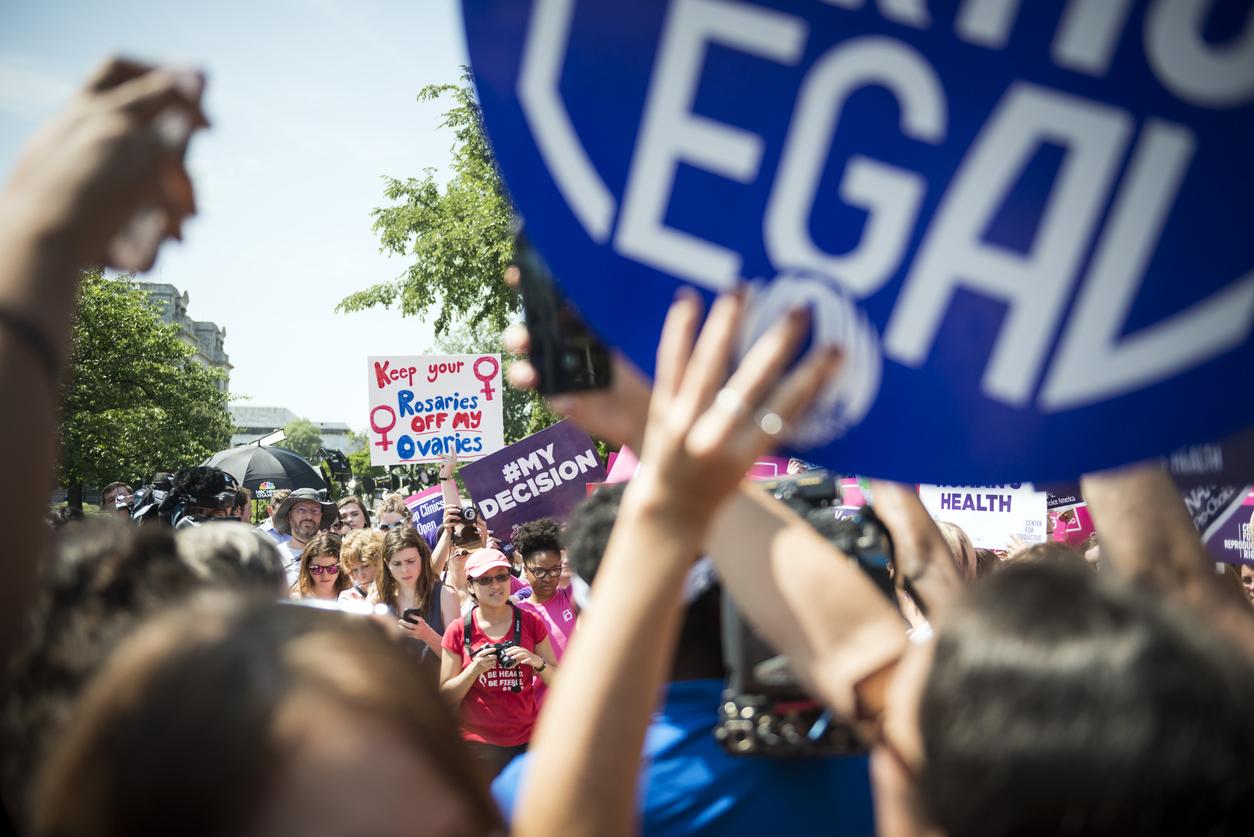Supreme Court to scrutinise Northern Ireland's 'degrading and humiliating' abortion laws
Lawyers claim current legislation is 'clearly in breach of the human rights of all women who seek abortion care'

A landmark case at Britain's highest court is set to rule on whether Northern Ireland’s strict abortion law is incompatible with with the European Convention on Human Rights.
At present, it an offence for a woman to terminate her pregnancy if the child is conceived through rape or incest or it has a foetal abnormality.
Lawyers and campaigners have claimed is “clearly in breach” of the human rights of all women who seek abortion care.
The Supreme Court appeal has been brought by the Northern Ireland Human Rights Commission (NIHRC).
Unlike other parts of the UK, Britain's 1967 Abortion Act does not extend to Northern Ireland, where it remains illegal except in cases where a woman's life is at risk or there is a permanent or serious danger to her mental or physical health.
Anyone who unlawfully carries out an abortion not under these circumstances could be jailed for life.
The NIHRC is arguing that cases of rape, incest, or serious foetal anomaly is in breach of the European Convention on Human Rights (ECHR).
Healthcare charities and women’s rights organisations, including the Family Planning Association (FPA), the British Pregnancy Advisory Service (Bpas) and Birthrights are intervening in the case to argue that the current legal framework in Northern Ireland amounts to inhumane and degrading treatment of women in need of abortion care.
In 2015/16, just 16 abortions were performed in Northern Ireland - the lowest number on record. In 2015, 833 women from Northern Ireland travelled to England for abortion care.
A High Court judge in Northern Ireland ruled in 2015 that that the current law was in breach of the ECHR in cases of fatal foetal abnormalities or where women are pregnant as a result of sexual crime.
The Northern Irish Department of Justice and the Attorney General successfully appealed this ruling. Consequently, the NIHRC has taken their case to the Supreme Court.
It will also rule on whether the Northern Ireland Act 1998 entitles the NIHRC to bring the proceedings under the Human Rights Act 1998 to seek a declaration of incompatibility.
The Stormont Executive's senior legal adviser, Attorney General John Larkin QC, along with the Justice Department, argue that the commission does not have legal power to bring the case and says it has failed to identify an unlawful act.
While the UK Government recently announced that they would fund abortion care in England for women resident in Northern Ireland, for some women travelling for medical care will be stigmatising and traumatic, particularly for those who wish to bring the foetal remains home for burial or genetic testing.
Rosa Curling, a lawyer from the human rights team at Leigh Day who is representing the charities, said the law was clearly in breach of women’s human rights.
“We hope by intervening we will be able to illustrate the very real human cost of what our clients believe is a degrading and humiliating decision by Northern Ireland’s politicians to pursue a policy which is borne from prejudice and which results in a law which is clearly in breach of the human rights of all women who seek abortion care,” she said.
Ahead of the case, Ann Furedi, chief executive of Bpas, said it "illustrates how women in even the most desperate circumstances – women who are victims of sexual assault, women who have received a tragic diagnosis of a severe foetal anomaly - are denied access to abortion care in Northern Ireland.
“The UK Government’s commitment to fund abortion care in England was a true landmark moment – but it is not the solution to the injustice of Northern Ireland’s draconian abortion laws.
“Whatever the outcome of the Supreme Court case, we urge NI politicians to listen to the majority of their citizens who support liberalising the law, and work to provide women with the care they need at home.”
Rebecca Schiller, chief executive of Birthrights, said she hoped the case would advance the human rights of women in Northern Ireland and ensure they would not have to add the burden of travel to an “already devastating” situation. Access to termination in these traumatic circumstances should be available to all women in their home country,” she added.
The hearing is due to last for three days.
Subscribe to Independent Premium to bookmark this article
Want to bookmark your favourite articles and stories to read or reference later? Start your Independent Premium subscription today.

Join our commenting forum
Join thought-provoking conversations, follow other Independent readers and see their replies